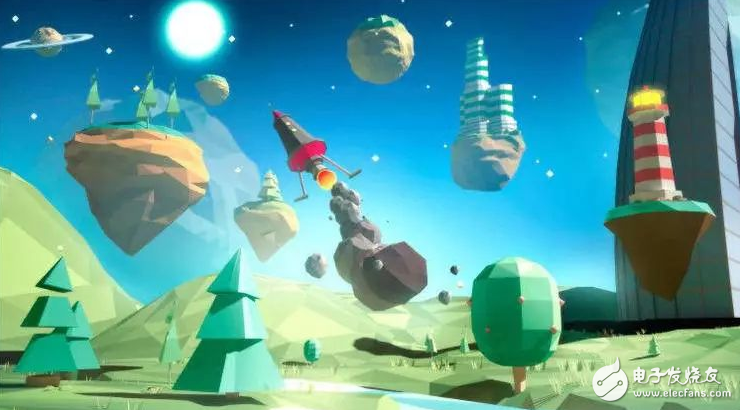With the emergence of cloud cats, the blockchain has once again received enthusiastic attention. VR technology is also a potential stock and has been widely used in many industries. If VR combines blockchains, what is the potential?
Recently, with the fire of the cloud cat project, more and more people are paying attention to the application of the blockchain. At the same time, VR technology has been applied in more and more industries. So what kind of sparks will be combined when the two are combined?
Decentraland, the project based on blockchain and VR technology, hosted the first real estate auction. The project uses VR technology to create a virtual social space for trading through virtual currency. Users can buy a piece of virtual land, build something on it, share experiences with friends and family, and even achieve revenue.
Market research firm TrendForce said that the global VR market will have an annual revenue of more than $70 billion by 2020, which is a huge market. The VR industry is growing rapidly, and the price of equipment is getting cheaper. Giants like Facebook and Microsoft are making great strides in the VR space. The launch of Decentraland may be in the face of the giants in the VR world.
Supporters say centralized VR platforms such as Facebook Spaces and Microsoft's AltspaceVR will overwhelm users' content.
Decentraland uses blockchains and smart contracts to ensure users have exclusive control over the virtual world. The company said that users on the platform can create virtual communities and towns, join unique avatars and use them in online communities for parties, social gatherings, corporate meetings, education and more.
Project leader Ariel Meilich explains, “The ownership of the project is encrypted through smart contracts, preventing anyone from stealing and changing the user’s property. Instead, a centralized platform can issue more coins, revoke ownership, and even delete users."

Figure | Some possibilities for living in Decentraland
Earlier this year, Decentraland held ICO and raised $25 million from 4,000 investors. The number of holders of digital assets ("tokens") from ICO indicates that the number of people who purchased virtual land at the first real estate auction has doubled.
In this platform, their value will continue to increase due to the limited number of land. The owner of the virtual land can exchange cryptocurrency by having the advertiser post an advertisement or rent it to someone else. Transactions are handled through blockchains and smart contracts, without the need for central agencies to intervene in transactions between landowners and their customers. This ensures that the user generates enough benefits from the virtual world.
The project leader also said that initially, people would upload static content. The first use is the transaction of creative buildings and collectibles, as well as the social experience provided through voice and text chat. Over time, games and more dynamic apps will be available.
Although blockchain technology will solve some of the problems brought about by VR socialization, it has other problems. The recently popular "blockchain cat" project CryptoKitTIes is bursting with red, followed by network congestion. Therefore, Decentraland only uses the Ethereum blockchain to store and trade land in virtual reality, and the actual content in the land is replaced by other options.
Decentraland also has trouble controlling content, companies like Facebook and Google, who have full control over their content and enough people to remove content. Decentraland cannot delete inappropriate content, but filters can be used.
Decentraland is not the only company dedicated to combining VR and blockchain. CEEK VR is a company that manufactures VR hardware and is also operating the VR platform. It is using blockchain technology to enhance the artist's influence and connect with fans around the world through VR performances. Through this platform, singers and stage performers can host VR live concerts. Fans all over the world can experience without having to arrive at the scene. CEEK does not use a centralized registration and payment platform. Instead, it provides artists with the tools to distribute and sell crypto tokens. Fans can purchase these crypto tokens for VR concerts.
In fact, anyone with the talent and skills can use CEEK to create content and make money. For example, a martial arts expert can open a VR course at CEEK and sell it through CEEK tokens. At the same time, developers can create VR environments and provide them as venues for the CEEK blockchain market.
Vibehub is another blockchain-based VR trading market where users can purchase and sell various VR content on the blockchain through their VIBE tokens. This can be live VR events such as concerts, 360-degree videos, tutorials and social gatherings.
These platforms, like Decentraland, are at an early stage, and time will tell if the decentralized model of the blockchain can give them the necessary impact, taking a slice from Facebook and other tech giants.
Ningbo Autrends International Trade Co.,Ltd. , https://www.vapee-cigarettes.com